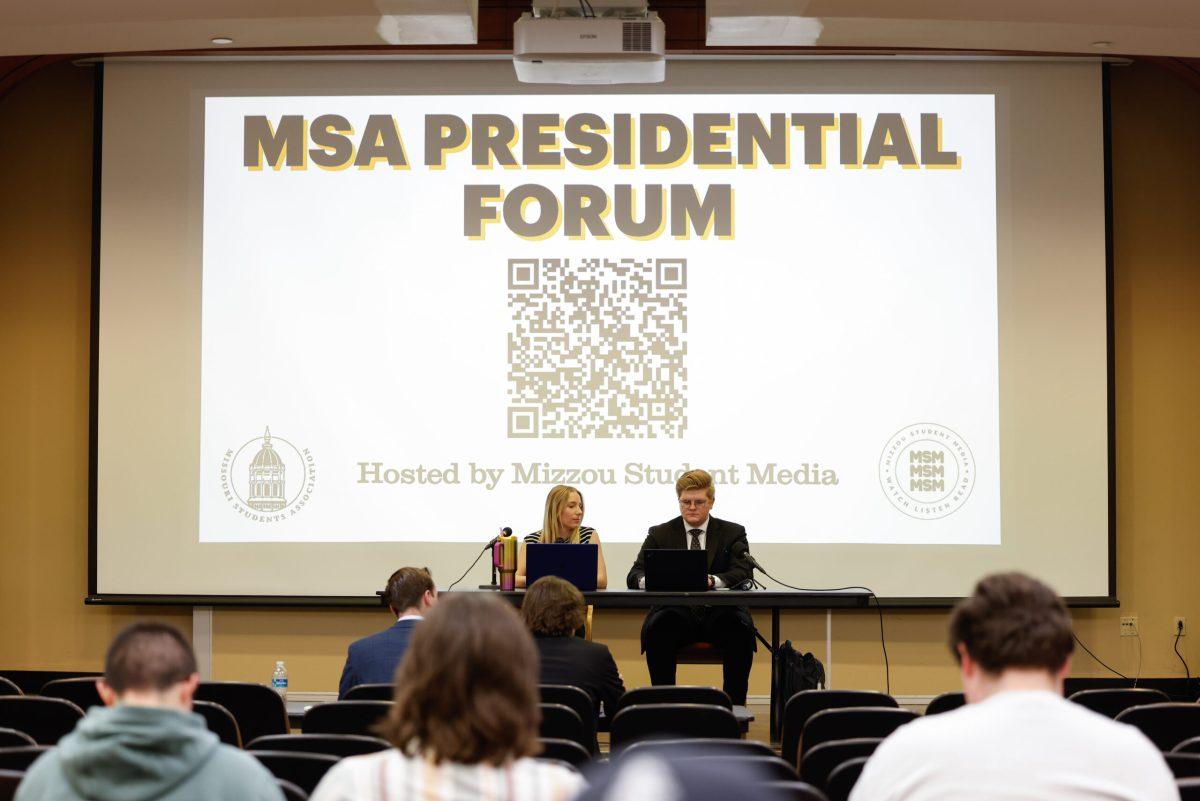MSA’s Social Justice Committee met on Feb. 7 to discuss updates to Wellness Week and refresh new members on the legislation process.
The Missouri Students Association had a busy night of committee meetings on Tuesday, Feb. 7. Members of the Social Justice Committee sat down together for the first time this semester at 7 p.m. in the Student Center to discuss changes to Wellness Week and review the process of proposing legislation.
The committee’s Vice Chair, Kaylyn Walker, informed committee members that she will be acting as chair this semester due to the committee chair studying abroad this semester.
A total of 12 members were in attendance. According to legislative assistant Daniel Daugherty, all committee members are members of MSA, however, it does not guarantee them the right to vote in the Full Senate; confirmed MSA Senators are the only members guaranteed that vote. Committee members that are not confirmed MSA Senators are allowed to vote in committees, upon discretion of the chair.
The main purpose of the meeting was to discuss Wellness Week, a week of informative events regarding mental and physical health, which MSA hosts in April. Walker presented the schedule for Wellness Week, which included the “themes” for each day. Some themes include on and off-campus safety, safe sex and healthy relationships, drug and alcohol safety, and more. Committee members were also informed that the speaker event originally planned for Wellness Week has been canceled. However, MSA’s Campus Affairs Committee members are working on alternative options; possibly a different speaker or a presentation of some sort.
Walker and Daugherty utilized the rest of the session to explain different types of legislation, how to draft new legislation and the process it goes through to reach a vote in the Full Senate.
Members can propose two forms of legislation; resolutions and acts. Resolution legislation can be one of five types; simple, congratulatory, imperative action, removal and overturning.
A simple resolution expresses an opinion of the association, while a congratulatory resolution celebrates an individual or a group on its behalf. Imperative actions call upon an individual or an entity to perform a certain task, removals affect the placement of officers and finally, overturning reflects a change in previous legislative action.
According to Walker, acts are a step above resolutions. There are two types; a constitutional act which proposes changes to MSA’s Constitution and a governing act that regards the bylaws and rules of the Senate.
When proposing new legislation, a committee member must identify a concern or issue they’d like to present to their committee members, later presenting the concern at additional committee meetings pertinent to the topic at hand.
From there, members reach out to administrators for assistance in promoting their cause or providing advice and information. After collecting information and sharing ideas, members can finally draft their bill.
After the act has been drafted the author will submit it to the MSA Senate Speaker. The act is then assigned to its appropriate committee for a hearing and vote. After its passage through committees, the act is then sent to the Full Senate where Senate members read through the act for the first time. Members will then listen to the author of the act speak on the proposed legislation before Senate members are able to ask the speaker questions and propose changes. Resolutions require one Senate reading, while acts require two. Regardless, following this presentation, the Full Senate has a discussion period where members discuss any possible amendments, if any, and finally, members vote on the act.
Walker closed out the meeting and legislative recap by taking any questions from committee members and shared information about their next meeting. The committee will meet again in two weeks at 7 p.m. on Tuesday, Feb. 21.
Edited by Annie Goldman | [email protected]
Copy edited by Mary Philip



















